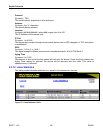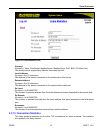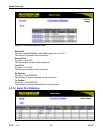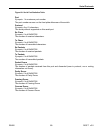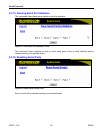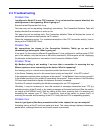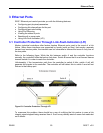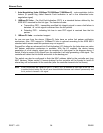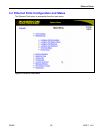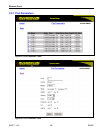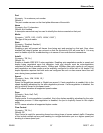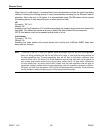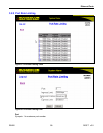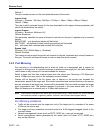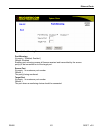
Ethernet Ports
ROS™ v3.5 94 RS400
1. Auto-Negotiating links (100Base-TX,1000Base-T,1000Base-X) - auto-negotiation built-in
feature (a special flag called Remote Fault Indication is set in the transmitted auto-
negotiation signal)
2. 100Base-FX links - Far–End-Fault-Indication (FEFI) is a standard feature defined by the
IEEE 802.3 standard for this link type. The feature includes:
a. Transmitting FEFI - transmitting modified link integrity signal in case a link failure is
detected, i.e. no link signal is received from the link partner
b. Detecting FEFI - indicating link loss in case FEFI signal is received from the link
partner.
3. 10Base-FL links - no standard support
As one can see from the above, 10Base-FL links have no native link partner notification
mechanism. Also, FEFI support in 100Base-FX links is optional according to the IEEE 802.3
standard which means some link partners may not support it.
RuggedCom offers an advanced Link-Fault-Indication (LFI) feature for the links where no native
link partner notification mechanism is available. With the LFI enabled, the device bases
generation of a link integrity signal upon its reception of a link signal. In the diagram above, if
switch A fails to receive a link signal from the controller it will stop generating a link signal. The
controller will detect the link failure and switch to the backup port.
The switch can also be configured to flush the MAC address table for the controller port (see
MAC Address Tables section). Frames destined for the controller will be flooded to switch B
where they will be forwarded to the controller (after the controller transmits its first frame).
Note: If both link partners are capable of the LFI, it MUST NOT be enabled on both sides of the link. If it
is enabled on both sides, the link will never be established because each side will permanently wait
for its partner to transmit a link signal.



